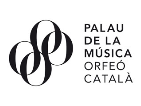In Memory of Sir Neville Marriner (I). Gianandrea Noseda conducts this wonderful concert dedicated to our great friend Sir Neville Marriner, who last season departed from us forever after conducting almost one hundred concerts with the Cadaqués Orchestra.
Wednesday 13th December 2017 | 20:00h
Palau de la Música Catalana - Palau de la Música
Programme
Josep Pla (1728 - 1762): Stabat Mater en Mi bemol mayor
Wolfgang Amadeus Mozart: Requiem in D minor, K. 626
In the last year of his life, Mozart not only offered the world his unfinished Requiem, but also The Magic Flute, Clemenza di Tito, the Clarinet Concerto, the Ave Verum Corpus motet, the last of his piano concertos (no. 27), various lieder, minuets, dances and contredances for orchestra, some arias, a string quintet, variations for piano and many other pieces (just the works he composed in his last year would have been enough to earn him a place in history!).
And also two brief cantatas: You who Honour the Creator of the Infinite Universe and a short Masonic Cantata (K.623), which breathe the spirit of Schiller's Ode that Beethoven would turn into his ninth. Mozart’s last year of work has much about it of epilogue and salutation, with a mixture of sacred themes, the humanist themes of freemasonry, the exaltation of women, and music for its own sake.
The unfinished Requiem adds the finishing touch to his wonderful oeuvre. The fact that it is unfinished serves to remind us that nature always has the last word, beyond our hopes and expectations. Gianandrea Noseda, principal guest conductor with the Mariinsky for many years, guest conductor with the London Symphony, and chief conductor of the National Symphony Orchestra and the Cadaqués Orchestra, understands that the Mozart's Requiem is much more than just a beautiful work. Right from the very first bar the Requiem gives humanity a metaphysical dimension and, as voiced by Mozart himself in his last cantata, expresses a desire for fraternity:
May our joy be proclaimed
loudly and happily by the orchestra.
May the heart of every brother be heard
to resonate within these walls.
For we consecrate this place today,
through the golden chain of fraternity
and the authentic union of hearts,
as our temple.
Information about the concert
Exclusive benefits for season subscription holders
- Direct discount on ticket prices (up to 25% depending on the type of season ticket).
- With the purchase of a subscription, you will obtain the same discount applied to the purchase of extra tickets for the rest of the concerts.
- Free access to all concerts on the Km0 music programme
- Payment in instalments
- Access to the best seats
- Possibility of keeping the same seat for the whole season or changing it.
- Personal service at concerts
- Preferential access to activities (talks, open rehearsals and meetings with artists)
- Regular information through a newsletter about BCN Clàssics concerts and activities.
Terms and Conditions
- Ticket prices include VAT at 10%, but there are no handling fees.
- BCN Clàssics reserves the right to modify the programming if any event beyond its control makes it necessary. If an artist is unable to offer a concert on the scheduled date, BCN Clàssics will seek a replacement for a renowned artist of international prestige. If this is not possible, an alternative date will be scheduled. The concert will only be cancelled as a last resort.
- The cancellation of a concert is the only admissible reason for a refund of the amount paid for the tickets. In other cases, BCN Clàssics will not refund the amount paid for the tickets. Depending on the case, they can be exchanged for vouchers worth the same amount, which can be used for other concerts on the programme.
- The listed ticket prices are indicative. BCN Clàssics reserves the right to modify the prices of certain concerts depending on the number of tickets sold.
- Once a concert has begun, entry to the auditorium is not permitted.
Subscribe to BCN Clàssics 25/26
Discount on ticket prices.
Big concerts. The best seats. Payment by instalments.








